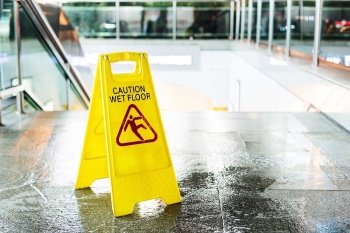
When you get hurt in a slip and fall accident, or if you sustain injuries on another party’s property because that property owner failed to install property lighting or to hire a security guard, can you file a claim for compensation?
These questions concern premises liability laws in New Hampshire and when a person is eligible to file a lawsuit.
In order to know for certain whether you have a premises liability case, it is important to speak with an experienced New Hampshire premises liability law attorney about your claim. The facts of each case are different, and it is important to have an experienced Vermont premises liability lawyer assess the merits of your case. At the same time, we can provide you with some general information about the premises liability law process and elements you will need to win your case.
Common Types of Premises Liability Claims in New Hampshire
There are numerous reasons that a person can get hurt on another party’s property and file a premises liability claim. The National Safety Council (NSC) cites the following are some common issues in premises liability lawsuits:
- Liquid spill on the floor;
- Inadequate lighting;
- Tripping hazards in a walkway;
- Rough flooring;
- Torn carpeting; and
- Inadequate security.
If one of these issues resulted in a slip and fall or other accident in which you got hurt, you may have a case.
What is Premises Liability Law in New Hampshire?
Premises liability law is a specific area of personal injury law that allows a plaintiff to file a claim against a property owner when that plaintiff sustains injuries on the property.
Generally speaking, a property owner—or a person who is in control of the property, such as a renter—must take steps to ensure that the property does not have any unreasonable hazards that pose a risk of harm. Property owners must repair any dangers on the property or warn people on the property about those risks.
When does a property owner owe this type of duty of care to someone on their property? Generally speaking, if someone goes onto the property as a customer, such as at a retail store or hotel in New Hampshire, the property owner owes this duty of care.
Property owners also owe a clear duty of care to friends and family members they invite onto their property for social reasons. Accordingly, even if you visit your neighbor’s house for dinner, your neighbor has a duty to prevent you from sustaining injuries in an accident due to a dangerous condition on their premises.
If any of these scenarios sound familiar, you may have a premises liability case.
Statute of Limitations for a New Hampshire Premises Liability Claim
Like many personal injury claims, New Hampshire law requires most premises liability lawsuits to be filed within three years from the date of the accident. As such, you should speak with a lawyer as soon as possible about your claim.
Proving Negligence in a Premises Liability Lawsuit
To win a premises liability lawsuit, a New Hampshire plaintiff generally must prove the following elements of a negligence claim:
- The defendant owned, leased, occupied, or otherwise controlled the property;
- Defendant failed to use reasonable care in repairing dangerous conditions on the property or warn about them;
- Plaintiff got hurt; and
- The defendant’s failure to repair or warn was the primary reason for the plaintiff’s injury.
Contact a New Hampshire Premises Liability Lawyer
Do you need assistance filing a premises liability lawsuit? An experienced New Hampshire premises liability attorney can assist you. Contact Sabbeth Law today to learn more about filing a claim for financial compensation.
